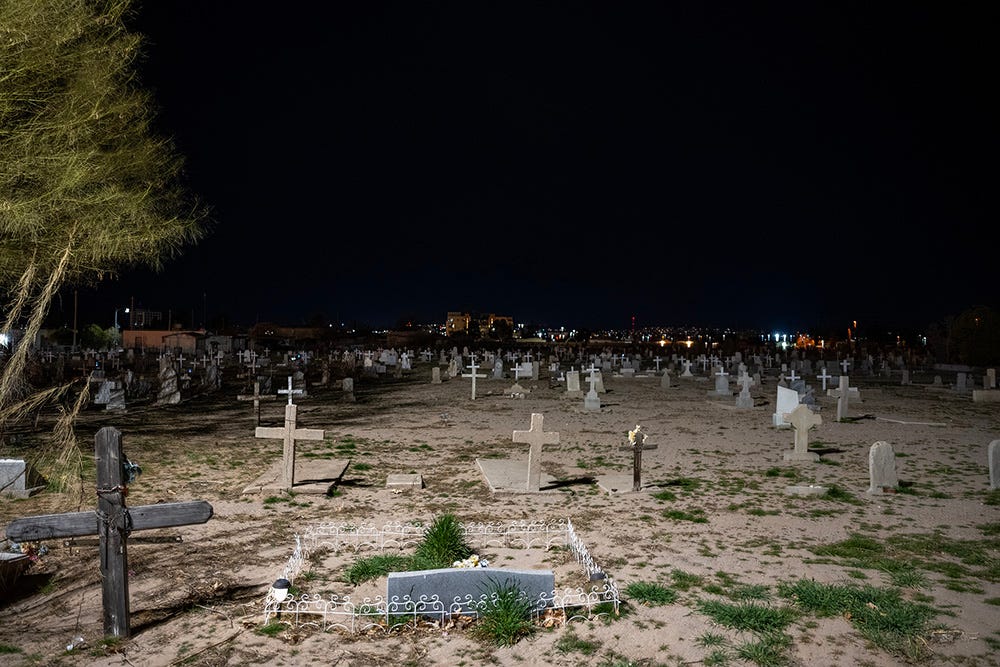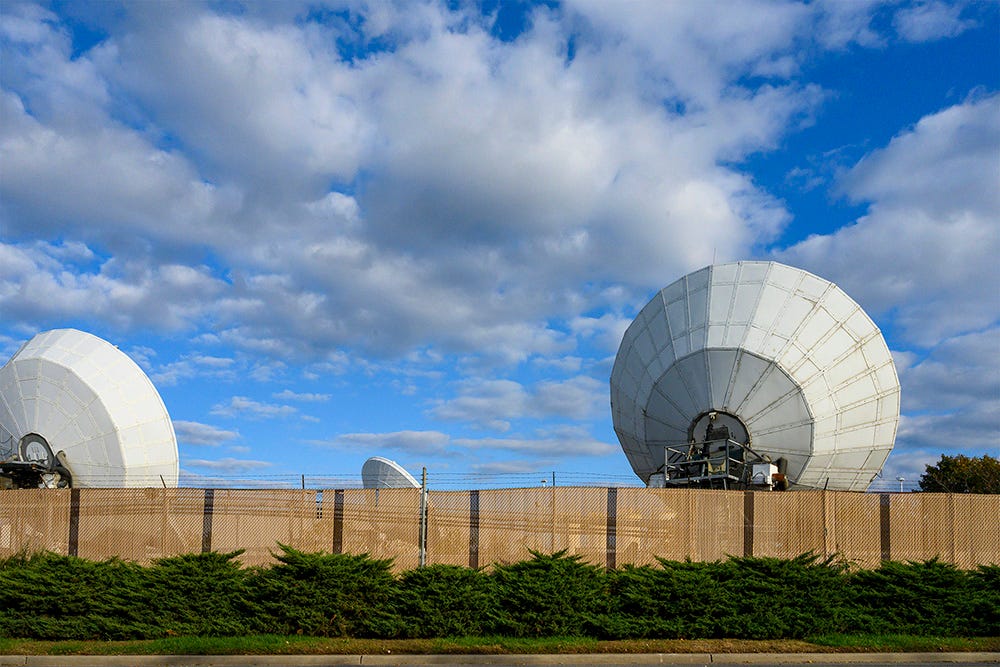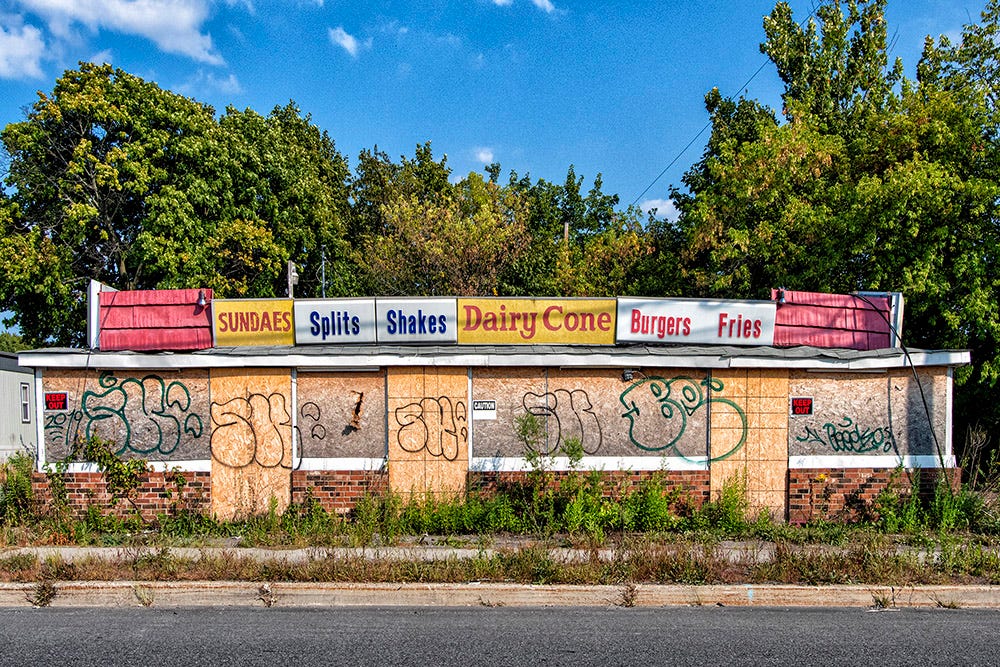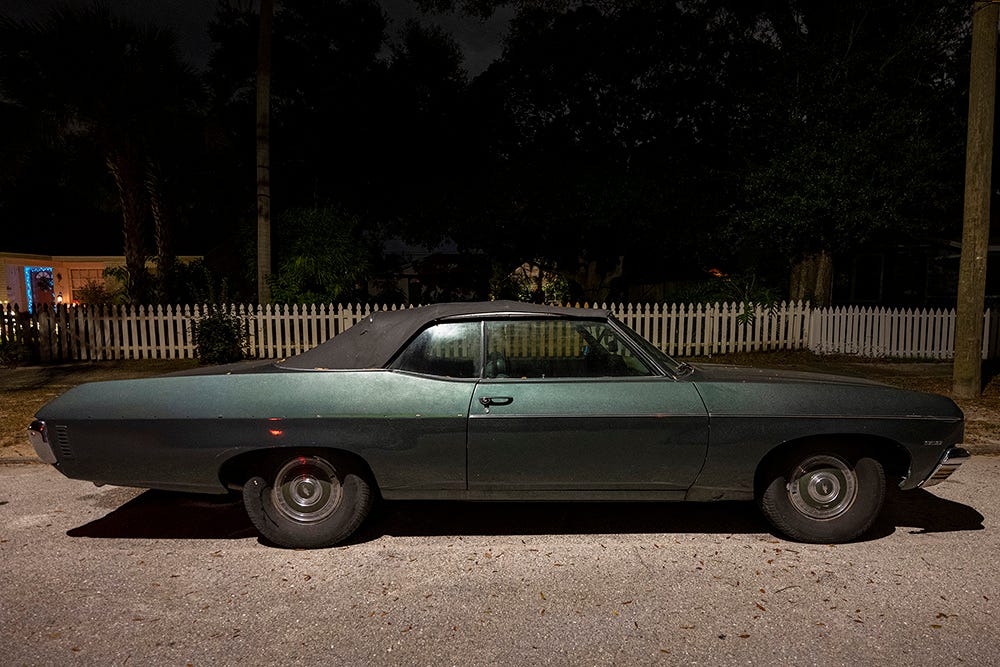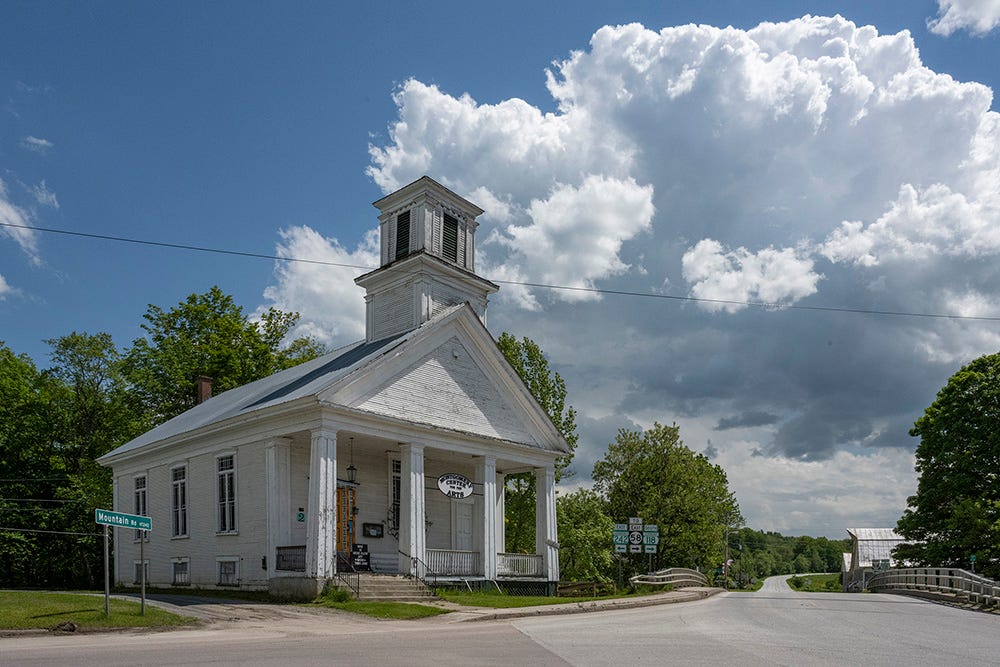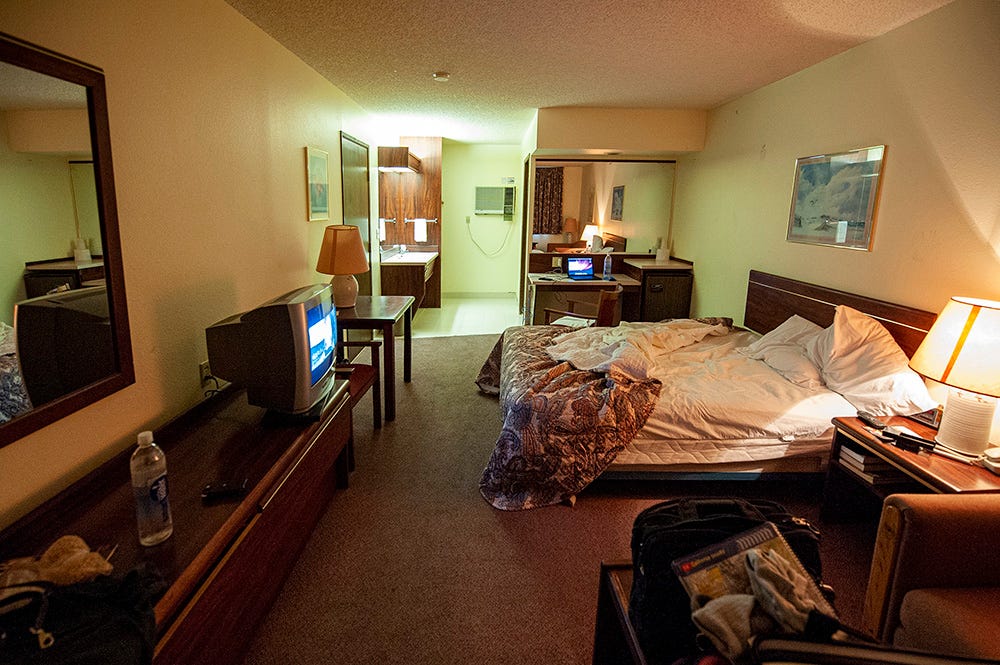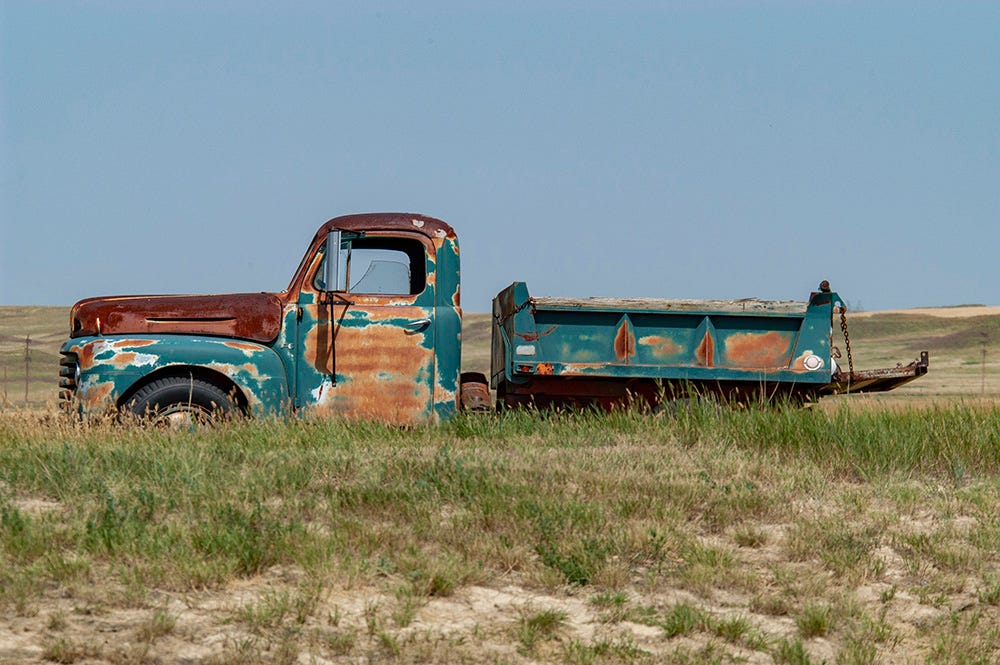The whole concept of cemeteries is strange - burial grounds with rocks that commemorate dead people. I understand it and I know that cemeteries are necessary and it seems normal, crossing many cultures. Marked graves are a way to make something permanent, to show that a life meant something. The burial ceremony lets us grieve. Stone lasts forever. Kind of. It’s a way of making sense of something awful, of dealing with our own mortality. Graves are for the living.
I went up to Mount Hope today, in Westchester County, because I was not sure what else to do. I had been thinking of leaving town, going on a road trip, but I just couldn't or wouldn’t. I'm either burnt out, have no energy or I’m in a funk. Whatever it is, I cannot break the gravity of my home base, so I thought, “Let me go up to the cemetery where my parents are buried and, you know, just hang out for a bit.” I won’t judge that thought. Mount Hope is a peaceful place and it’s another demonstration of why we need graves. I want to be cremated - hopefully not too soon - and scattered out west near some favorite hot spring, but that’s the subject for another happy literary excursion.
I rushed to get there before 4:00PM, when they close the gates. I drove that little curving road up the hill, parked on the side of the grass, and took a quick visit with everybody who’s gone. I saw the name on the tombstone, my name, and it made me ruminate on the brevity of life, then think that I have to finish the book I’m working on. I still don’t know what my visit meant - whether I should stay in town or leave. That's the problem with signs and messages. They're subject to interpretation by humans. And when I’m in this kind of state, I can convince myself of anything.
I got no clear signal, so I washed my car and went up the hill to see my old elementary school, where I went to kindergarten through the 5th grade. As with everything else from my early childhood, the hills that were so big at the time are not that big. Many of the houses are the same. The big green wooden backstop that we used to toss against and hide behind, the one that had a hole from thousands of kids hurling a baseball at it for decades, that's gone. It's now a basketball court. The roads are the same. Some of the houses are new. Grandview Boulevard is less grand. Many of the big trees are gone. It feels strange. It used to be a leafy neighborhood, but people decided to get rid of the trees in lieu of raking leaves.
At the dead-end where I last lived in Yonkers, there's now a fence, a big wooden fence, so you can no longer walk through the dead-end. That was one of the most well-worn pathways of my youth, walking through the O'Dowd’s backyard. God bless the O'Dowds. They left their backyard open. I remember the names of the families who lived on those streets 50 years ago. They had all moved there from somewhere else and most of the houses had children. It was the tail end of the post-war baby boom and the neighborhood was filled with nuclear families. It all looked good on the surface, but there were strange currents underneath. Still, I was rooted to the block I lived on. That was the bedrock of my basic allegiance, after my family. That was my center of gravity.
I left and drove down Snake Hill. The actual name is Colonial Parkway, but it curves like a snake, so that’s what everybody called it. That led me past the old Burroughs-Welcome pharmaceutical factory building in Tuckahoe and I followed the route that my father walked every morning and evening, every day for years, to and from the train. The train left from Tuckahoe, which used to be a broken-down little town. The stairway into the pharmaceutical company headquarters now has a bunch of bushes and planters on it and some of the planters look abandoned. Where a little strip mall used to stand, with a dingy old supermarket and a combination rare coin store/laundromat, it's now a parking lot.
It's a charming town for some people. The old Tuckahoe is burned on my mind and it may never be anything else for me, stuck forever in the mid-1970s. The old Parkway Casino is gone. The building is something else. As with New York City and probably every place else, the rules of the road have changed. You can't make right turns where they used to exist. You can't make left turns in some places. And in other places, you can't go straight ahead. The place has gotten richer and filthy with people. Everything changes.
I stopped at the Tuckahoe station parking lot, where I would wait with my mom for my dad to come home on rainy days. Most days he walked. When I was a kid, the trains were from the New York Central line. Commuter trains would roll in and stop. They had wicker bench seats that you could flip over and face in the opposite direction. They also had lazy fans and windows that opened. I lived for the big diesels that would thunder by and make the whole platform shake. That railroad briefly became the Penn Central and, finally, Metro-North, which it remains to this day.
My best friend and I would ride our bikes down the hill to Tuckahoe and smoke weed at the end of the train platform once we turned 13. We could get high at the train station because there was nobody there and it was just so fucking dead. There was also a park with geese that was always empty. It was all like a movie set and we were the only living characters on it. A happening little town, Tuckahoe. My fondest memories of it are from the summertime, when it was absolutely still and sunny. Tar puddles on the asphalt would form bubbles. An occasional car would roll through, along with an occasional train. There was a ticket taker in the old station behind a small, barred window and pretty much nothing else was going on. It has since gentrified and gotten noisy. Tuckahoe is 28 minutes from Grand Central Terminal, so it was only a matter of time before it was discovered.
We used to walk down to the Bronx River Parkway. This was halfway to Tuckahoe and the old parkway had a wide, leafy strip of trees and shrubbery alongside it. I was not worried about ticks and Lyme disease back then because it wasn’t a problem. I worry about it now, even though it’s not a problem in New York City. I worry too much, usually about the wrong things. Anyway, we would walk into the heart of the brush, beat down a small clearing, then smoke more weed. This was before my friend got a car and we could venture forth to the parking lots on Central Avenue to smoke weed in the car, beers in hand and cassette player blasting. We had to buy the pot from shady sources, guys who worked in record stores down in the Bronx, and we carried it around in film containers. Smoking weed is socially acceptable now. Back then, it was more of an adventure, a first step into the criminal realm, a true gateway. We saw it as benign, but our parents did not.
The hills in Yonkers were long and steep. They still are, but they seemed steeper when I was young. Every time I went anywhere as a kid or even as a teenager, it was always by bicycle. Coming home meant an insanely hard pedal up a long hill, but it was okay because we could handle it then. Our legs were strong and our knees were fresh. I could do it today, but I would suffer a good bit. Yonkers was a fine place to grow up, even though the big city was - and remains - just 14 miles away. It was a fine place to grow up until it wasn’t. It was safe and quiet and I wandered all over the place, restless before I knew I was restless.
I have returned to Yonkers many times and I think it’s my way of trying to figure something out, but I’m not sure what. And I’m not sure why I went there today after the cemetery, but it had something to do with my inability to leave town. That inability has become such a regular part of my road trips that I have reduced it to the phrase “breaking gravity.” I pack, then remain in a holding pattern, ready to leave on a half hour’s notice. This can go on for weeks at a time. It means refreshing the ice in the cooler, keeping my bags packed, and making sure the dog food is ready to go. Then I wait until the spirit moves me. Once in a while, I have a date set in stone and have to just go. I can usually do it. It’s always been easier when I travel with somebody because that’s a form of accountability. It’s still a thing, though, this gravity.
My editor-in-chief recently told me that she needs something soon. “I need something soon,” she said. I had been thinking about writing a piece on this phenomenon of “gravity” and had reached a conclusion - it all boils down to the simple fact that I don’t want to get out of bed. That’s not accurate, though. Nor is it true. It’s easier to be glib than to be honest. And it’s easier to be honest than to be introspective. I have many pages of weird notes on my inability to leave town. These notes are in a folder labeled “Gravity” and they are remarkably consistent because most of them occur at the same time - when I’m having trouble leaving town, when I am stuck. I talk about it and think about it, exhort myself, scold myself and then forgive myself. It’s exhausting.
It would be an interesting exercise to assemble all of these notes, but it might not be interesting to anyone else when I’m finished. I could read all of my notes and then write about how I feel, but I’m not sure that would be a good read, either. Does it matter if it’s a good read? Only if other people read it. “When a tree falls in the forest” and all that. Let me groan a while and weep to the heavens. Let me dust my keyboard and dawdle away another day.
I have made lists of good reasons to leave town – a thing to dangle in front of myself. I have made lists of things I would do if I were to stay home. These are often compelling, as well. I have called friends and wailed. I have been so caught up in the mental loop that I have stopped calling friends. I have prayed to the gods of my understanding for guidance. I have left town, driven a few hundred miles, then turned around. Two times in two different years, I stopped for gas in Lamar, Pennsylvania, then turned around at the truck stop and headed home. After the second time, a good friend told me I should never stop in Lamar again. I no longer stop in Lamar.
The road is often hard, but I never regret it. In fact, if I can make it across the Mississippi River, I never turn back. The Mississippi is my own personal Rubicon. I open the windows on whatever bridge I’m crossing it on, then breathe deeply. The air seems different and it feels like I am landing in another continent. If I have a dog with me, I’ll cry out, “WE’RE CROSSING THE MISSISSIPPI!” It’s an emotional watershed for me. I get energized and the thousands of miles in front of me become an adventure instead of a chore. Driving long distances is not for everyone. In fact, it’s not for most people. I told a neighbor of mine last year that I was heading to California and, when he asked how, I told him that I was planning to drive. He looked aghast. The elevator stopped and I got out as he stared at me. I could feel the judgment.
It’s not easy getting going, though. I liken it to those big Saturn V rockets I used to watch on TV as a kid. The first stage took a lot of fuel just to get that big thing off the ground. It’s shocking how much energy it took and people would come from all over just to witness that plume of flame from the open areas near Cape Canaveral. The energy was palpable. The power of that big rocket pushing into the heavens, straining against the shackles of planet Earth.
The second stage took a lot of fuel, as well. When they would finally hit outer space, though, when they finally broke free of Earth’s gravity, it became effortless. And that’s the way it feels for me when I’m on the road. If I can just get through the first day, which is often the states of New Jersey and Pennsylvania, it’s a lot, but I have found that the second day can be more treacherous. It is close enough to home that I’m in danger of turning back. I have a running, insane commentary in my head the whole time as I grind through the rolling hills of the Alleghenies and the Appalachians. Why not go as far as I can the first day? Sometimes I can, but not always. If I can make it through the second day, though, I wake up over 1000 miles away the next morning and get pulled forward instead of backwards. Suddenly, the noise in my head stops and everything around me gets interesting.
I used to leave at night and drive until I hit a truck stop, then sleep for a few hours and keep driving. I value my comfort and sanity more now and don’t do that. I like a good night’s sleep. I recently wrote a piece about being in limbo - feeling like I didn’t belong anywhere - and told that same editor-in-chief that I was thinking about doing a piece on gravity. She said, “That’s kind of the opposite of limbo, isn’t it?” I wasn’t sure what she meant. I am sometimes dim and obtuse, but I get it now. Feeling rootless versus feeling rooted. Rooted to the point of being unable to leave. In my case, the limbo is emotional and the gravity is closer to literal, but they are antipodes. And is the gravity literal? It feels real enough to me.
The cool thing is that I’m almost ready to turn in this piece to the Editorial Desk and I haven’t even touched my notes on gravity yet. I will spare you all. I don’t know why it’s so hard to leave the comforts of home, especially if I know I’ll be returning to those comforts. I’m lucky enough to have a home. And it’s not so strange to enjoy comforts. It could be that some of the most rewarding things in life take a bit of a push.
The road doesn’t scare me. I love the road. I love the uncertainty of it, the not knowing where I will head on any given day. I love taking photos, seeing new things and eating strange food. I love the act of driving. I like the transient feeling of motel life. When I’m home, I love my routines and my familiar places and errands. There’s nothing bad about this whole picture. Am I running from something on the road? I don’t know and I don’t care. I guess the big thing is that I can still decide whether to stay or go, even if it doesn’t always feel like I have a choice. This is one way in which we deceive ourselves. Free will, baby, free will, whether we like it or not.
I’ll tell you what real gravity is. Real gravity is an anchor. It’s being tied to a bad situation, whether that’s a relationship or a terrible job or one of a million other shackles that life can hand out. (Free will, baby.) It’s being too sick or too tired to do anything. Or too broke. Let’s not forget about being too broke to leave town. It’s being too depressed or too anxious or too torn up over something. It’s not always possible to get up and go. Real gravity is ultimately, of course, when you’re buried in a cemetery. That’s the last stop. People can come and visit you and try to figure their own stuff out, but you’re not going anywhere. You’re dead. I remember a line from some World War II literature. Somebody who had witnessed the unspeakable said, “As long as the eyes are open, there is hope.”
I have gotten better at seizing the moment. Not always, but I’m getting better. Carpe diem, right? My timing in life has not always been great, but it’s not all been bad, either. I have spent a lot of time on the road and don’t regret one minute of it, even that time I ended up in a campground in Lowman, Idaho and the person I was with said, “I need to go home now.” One day I might write a book about that. Or I might forget it forever. What’s the point of lingering on shitty memories? Look back, but don’t stare. That’s what they told me.
When I'm waffling and vacillating at home, I must never forget how great it is to be out on the open road, how good for the soul it is to be on these long ribbons of desert highway or in the mountains or on some quiet beach. Going down the main drag of a strange city or finding the local pie place in a small town. I always need to re-learn how good it is to be away from my home city, as much as I love that city. As much as that city makes me crazy.
I have to remember how good it is to have no agenda for the day other than reaching a motel or a campground. Or just to have a short list of small things to buy at the convenience store. I have never regretted it, never regretted going out on the road. I have never had a horrible time, even during those first two days of breaking gravity. It's all in my head. The gravity is all in my head.
You can contribute any amount to Juke using these Venmo and Paypal links:
Paul Vlachos is a writer, photographer and filmmaker. He was born in New York City, where he currently lives. He is the author of “The Space Age Now,” released in 2020, “Breaking Gravity,” in 2021, and the just-released “Exit Culture.”



